Over spring break a group of eight Macalester students visited Madison and Clark counties in Kentucky, helping to build affordable housing with the local affiliate of Habitat for Humanity. The trip consisted of Finn Odum ’21, Emily McPhillips ’19, Zoelle Collins ’21, Zully Maya ’22, Lily Jenssen ’21, Miranda Moulis ’22, Grace Reardon ’21 and Malcolm Cooke ’21.
Macalester students spent a majority of their time working on a home being built for Esther McMillan, her boyfriend Dustin Smith and their son Christian in Berea, KY. McMillan grew up in Harlan county, an impoverished area of the Kentucky Appalachia.
“I have always grown up poor,” McMillan said in a promotional video on Madison and Clark counties Habitat website. “When my son grows up, I want him to know that you can achieve anything, no matter where you come from.”
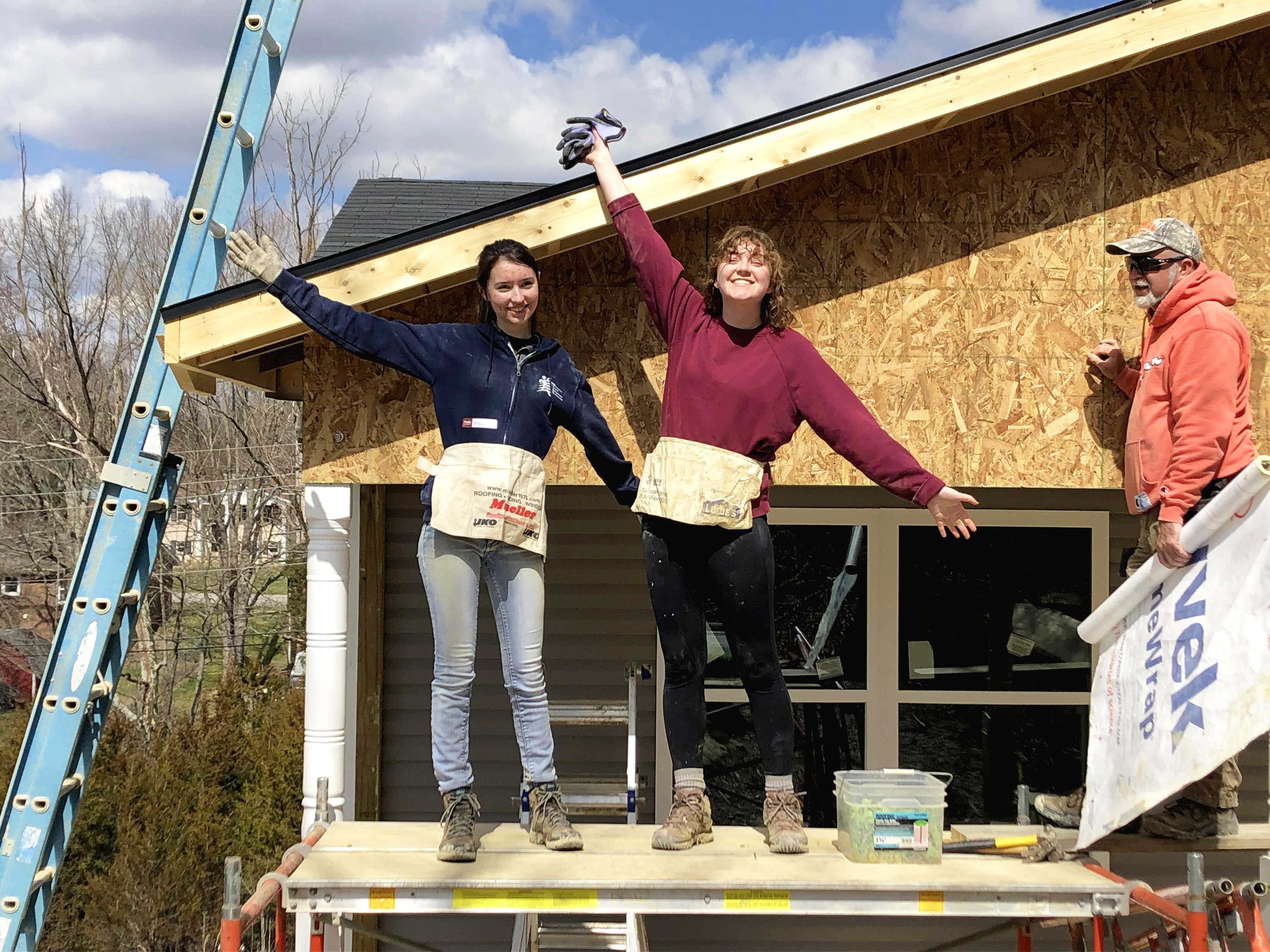
But even in the relatively more prosperous Madison County, McMillan and many other Kentuckians still deal with issues of housing.
“One in four families in Kentucky have a housing need,” the Interim Executive Director of Madison and Clark counties Habitat, Charlene Stone said.
“There are housing needs… in the Appalachian region of Kentucky, but it’s right here too,” Fundraising Coordinator Jessica Ball said.
Habitat for Humanity works with families to provide a mortgage which is viable for their financial situation. Relying on volunteer labor, Habitat construct houses cheaply and provides assistance for families in need. “In this little space of our lives, we have an opportunity to truly reach out and help somebody,” Stone said. “We’re not here for the money. Nobody who works for a non-profit is gonna be there for the money.”
McMillan’s new home is only a few miles to Berea College, a small private liberal arts college that does not charge its students tuition. Esther plans to use her new home’s proximity to the college to get access to higher education.
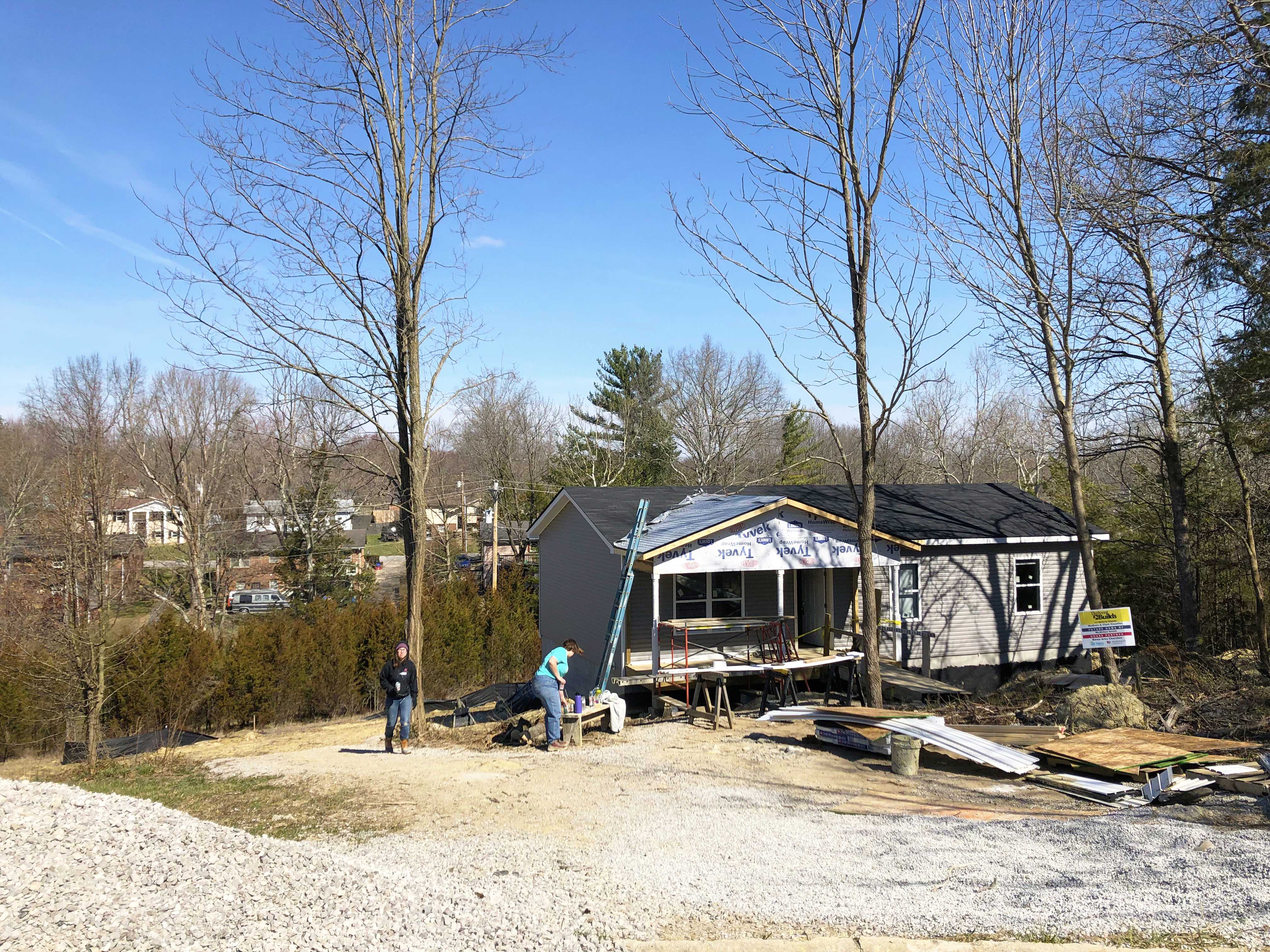
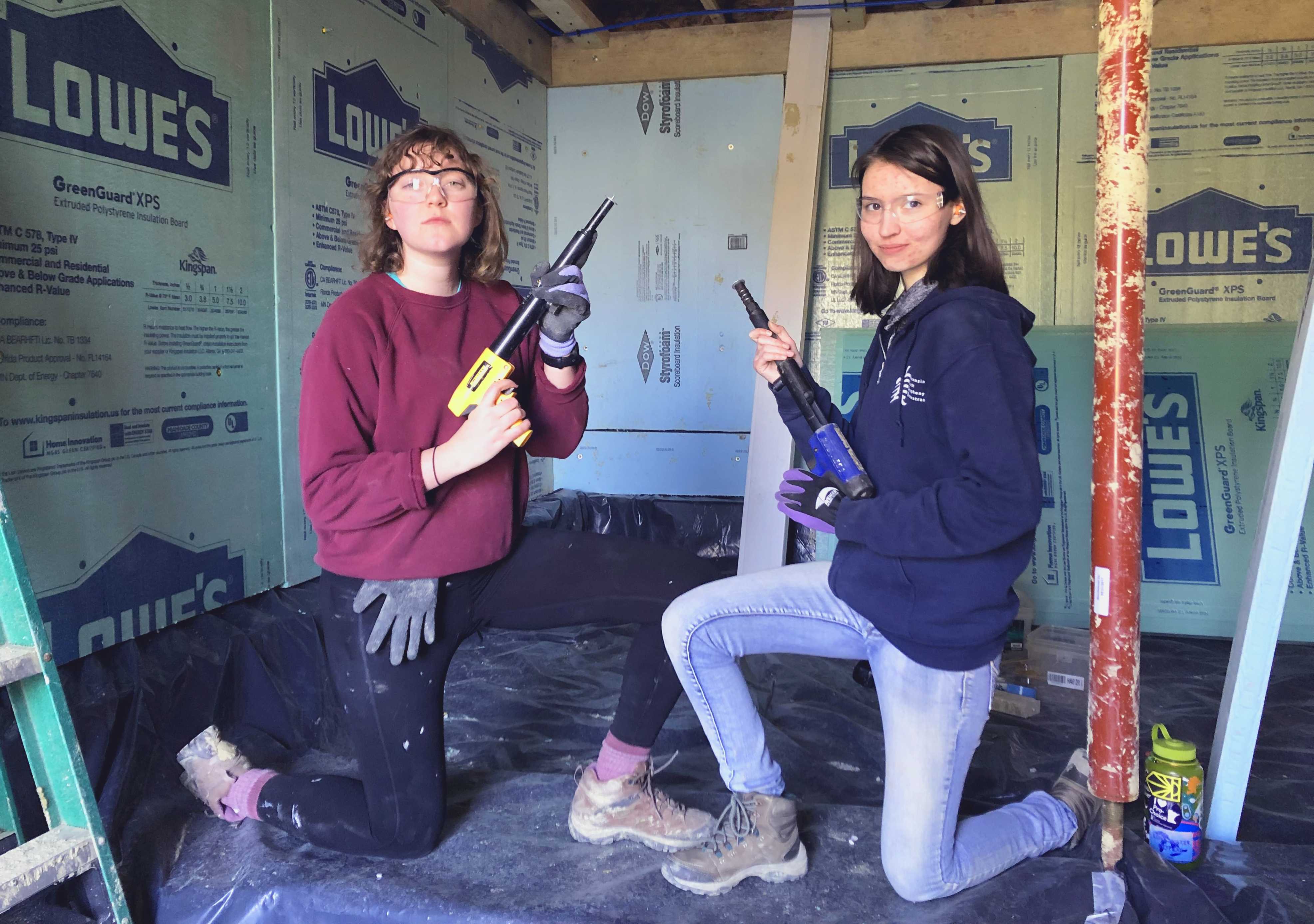
Photos by Malcolm Cooke ’21.
The spring break trip is the most ambitious of several Habitat events that happen every semester, which are facilitated through the Macalester Habitat for Humanity organization. The most common outings are referred to as “build days,” where the Macalester org partners with the Twin Cities chapter of Habitat and spends a full Saturday volunteering their labor at a local construction site.
On March 30, Mac Habitat will be returning to a house they worked on earlier in the semester, aiding in a renovation of a Habitat home that has returned to the organization’s possession.
Often Habitat for Humanity purchases land and builds a house from scratch, but it also renovates older properties. Occasionally Habitat homes are returned to Habitat due to the upward mobility of the family that first received the house. For example, one family member might get a promotion or better job and decide to move to a different home. Unfortunately houses are sometimes returned to Habitat ownership because a family finds itself unable to pay the mortgage, despite Habitat’s aid.
In the past few years Madison and Clark counties Habitat has started spending more time on housing renovations.
“In this affiliate, we’ve built about 110 homes. We have serviced 143 families,” Stone said.
Office Manager and Family Engagement staff member Joshua Arthur explained how servicing families could address housing needs that do not require a totally new home. For example, a housing need could be defined as “unsafe living conditions,” such as when mold causes health issues. If a family is faced with a situation where they must spend money on hospital bills instead of fixing the issue with their home, they can be caught in a vicious and unsustainable cycle.
The renovation that Madison and Clark counties Habitat performs seeks to stop such cycles before they begin, fixing potential hazards in the houses where people already live. The staff of the local affiliate pointed out that housing needs such as these are often more diverse than one might typically think.
“We always think about [poverty] as being the torn down shacks. But we also never know that it’s the people who have… the grandparents raising their children,” Stone said.
“It’s what they can afford but is not safe for them to live in,” Ball said. Macalester students who are part of Mac Habitat also have deep connections to the organization.
“I stumbled upon Habitat kind of by accident. I just saw a posting in what was then the Daily Piper,” Mac Habitat senior leader Emily McPhillips ’19. McPhillips has worked with Mac Habitat her entire time at Macalester. “There was a lot about [the first build day] that was pretty empowering for me.”
The impact the volunteer work is also recognized by the families who will live in the house, for which a number of “sweat equity” volunteer hours is required.
“In this house that was in Elkhart county, Indiana it was, like, totally transformed by the end of the week that we were there,” McPhillips said. “And alongside with the person who was gonna live there being super involved with it. That’s another really moving and humbling part of being involved in Habitat… I think is the sweat equity requirement of the people who are going to live there, meaning that sometimes you run into them when working on the house.”
Other students had more personal connections.
“My dad was a habitat leader in Peru, and my mother went on a trip before grad school,” said sophomore leader Finn Odum ’21. “They met and fell in love. So I guess you could say I’m alive because of Habitat.” But the Madison and Clark counties Habitat staff believe that, their non-profit is primarily about making a difference with service work.
“For me it’s about the heart. It’s getting people to understand, that the need is more… every single one of us needs to be understanding that we have to make a difference because we are the future. If everyone doesn’t learn how to give back then we’re going to become a society that nobody wants to live with,” Stone said. “This is more than just about simple decent affordable housing. This is about making contact and being the human side of life because sometimes people in poverty never see that.”



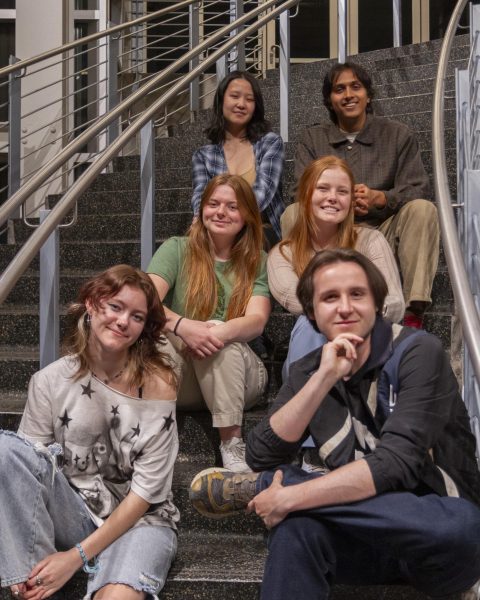

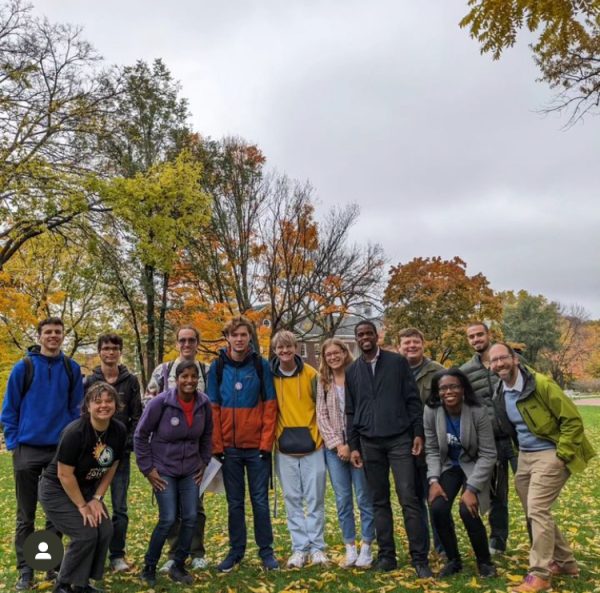






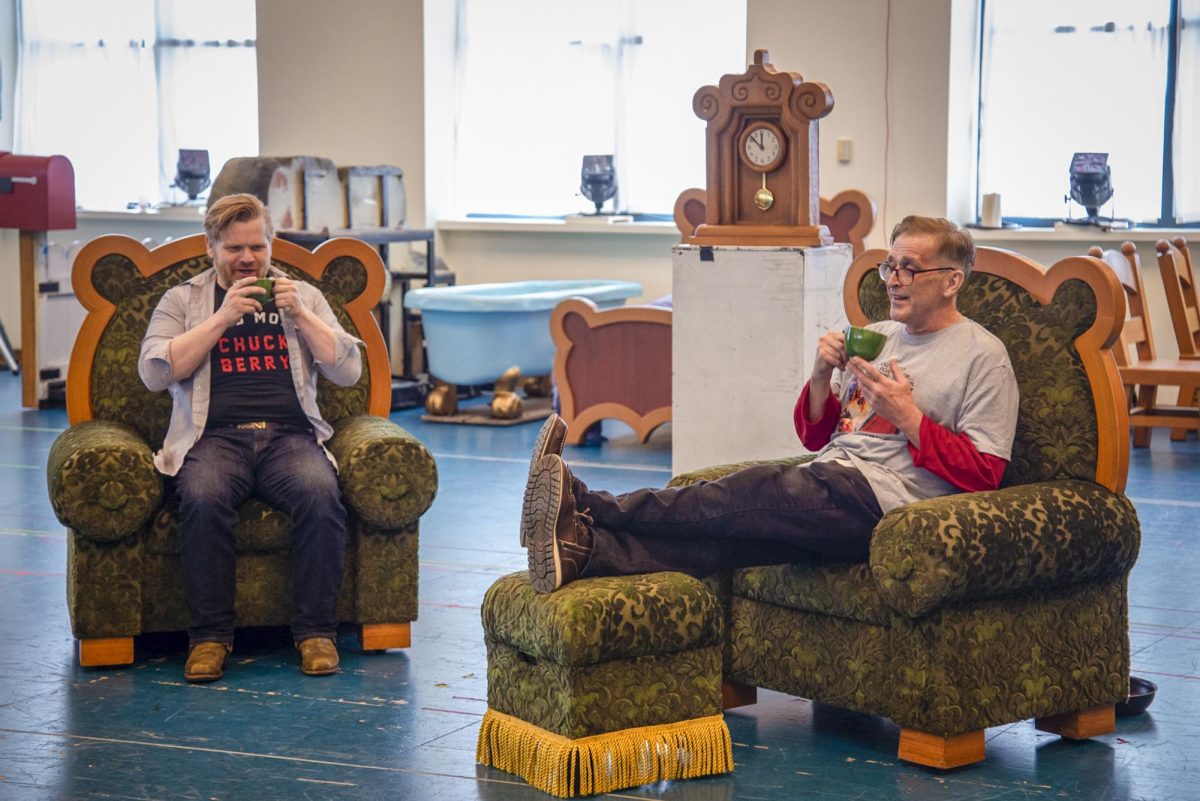
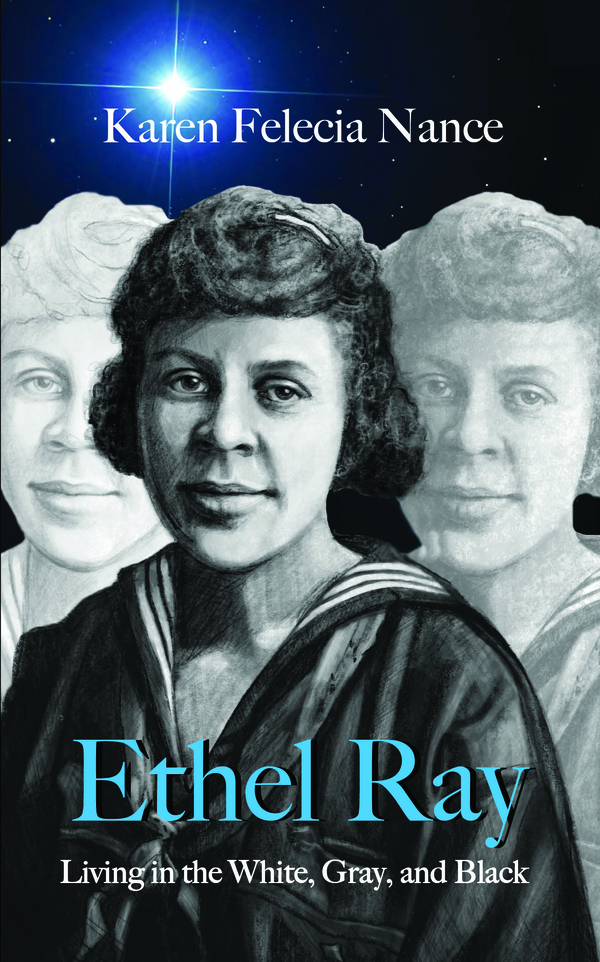
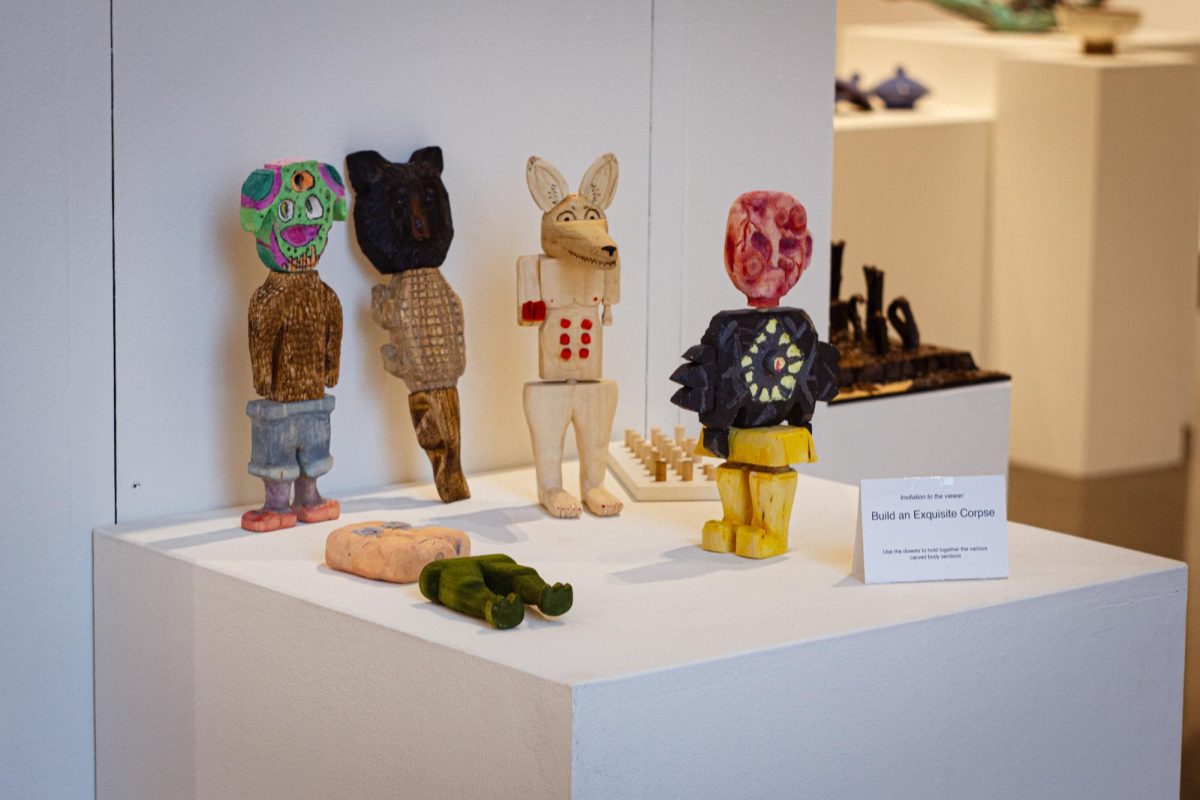
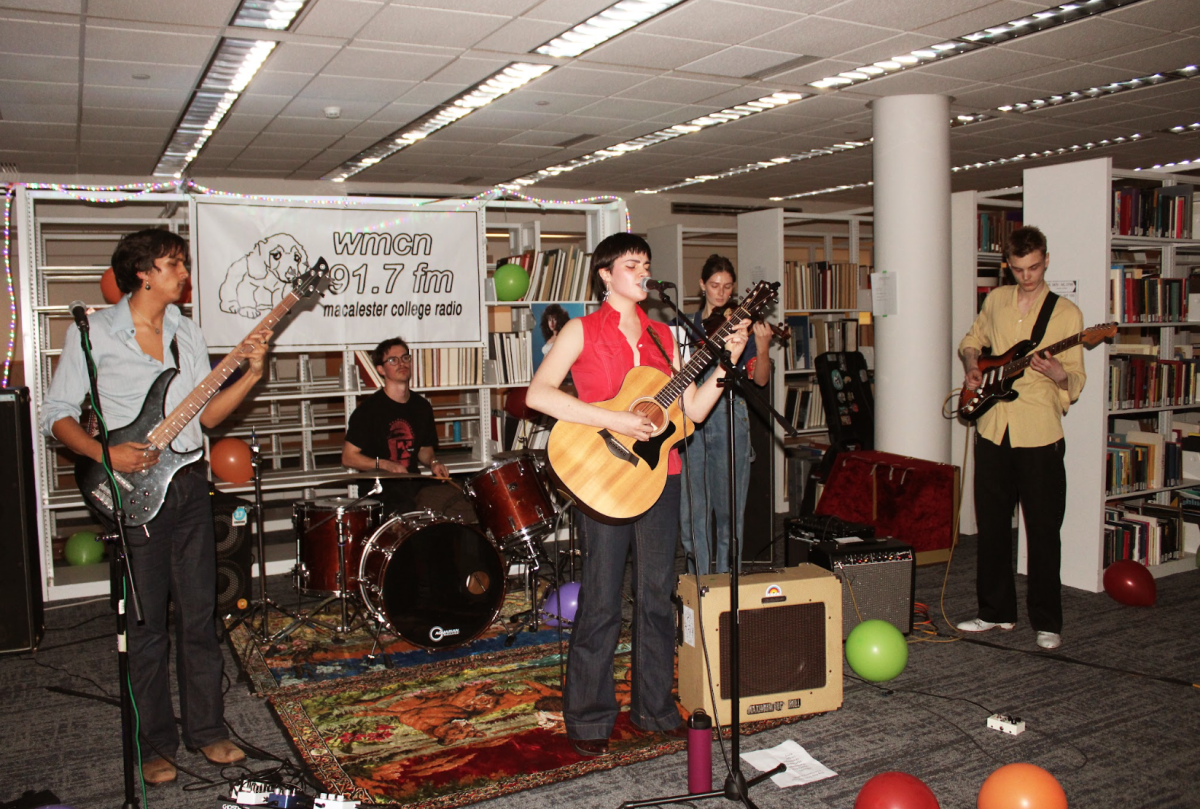

Denver warehouse and third party logistics • Sep 11, 2019 at 12:30 pm
Thanks a lot for the blog article. Fantastic.
revenda iptv • Sep 10, 2019 at 11:08 am
Great, thanks for sharing this blog article. Really Cool.
studio bouncy castle • Sep 8, 2019 at 9:48 pm
This is one awesome blog.Thanks Again. Keep writing.
quest bars cheap • Sep 8, 2019 at 12:20 am
hello!,I love your writing very so much! proportion we communicate extra about your post on AOL?
I require an expert on this space to resolve my problem.
May be that is you! Looking ahead to look you.
quest bars cheap • Sep 7, 2019 at 9:58 pm
Hello There. I found your blog using msn. This is a very well written article.
I will make sure to bookmark it and come back to read more
of your useful info. Thanks for the post. I will certainly comeback.
usps liteblue • Sep 7, 2019 at 8:26 pm
I appreciate you sharing this article post.Really looking forward to read more. Awesome.
quest bars cheap • Sep 7, 2019 at 1:13 pm
It is perfect time to make some plans for the future and it is time to be
happy. I have read this post and if I could I desire to suggest you some interesting things or suggestions.
Perhaps you could write next articles referring to this article.
I desire to read even more things about it!
Science Tutor • Sep 6, 2019 at 5:53 pm
Really informative blog article.Really looking forward to read more. Really Cool.
quest bars cheap • Sep 6, 2019 at 3:45 pm
It is perfect time to make some plans for the future and it’s time to be happy.
I’ve read this post and if I could I want to suggest you few interesting things or suggestions.
Maybe you could write next articles referring to this article.
I wish to read more things about it!
quest bars cheap • Sep 6, 2019 at 3:47 am
great put up, very informative. I wonder why the opposite specialists of this sector don’t realize this.
You should proceed your writing. I am sure, you have a
huge readers’ base already!
big and tall recliner • Sep 6, 2019 at 2:39 am
Awesome blog.Really looking forward to read more. Want more.
Andrew Avery • Sep 6, 2019 at 2:04 am
I would also love to add when you do not now have an insurance policy or else you do not participate in any group insurance, chances are you’ll well make use of seeking the assistance of a health insurance broker. Self-employed or those that have medical conditions usually seek the help of any health insurance brokerage service. Thanks for your short article.
minecraft games • Sep 5, 2019 at 4:23 am
Excellent way of telling, and good paragraph to obtain data concerning my presentation subject
matter, which i am going to deliver in school.
penis ring • Sep 4, 2019 at 10:15 pm
I value the article.Really looking forward to read more. Really Cool.
minecraft games • Sep 3, 2019 at 11:14 pm
I like it when people get together and share opinions.
Great blog, continue the good work!
minecraft games • Sep 3, 2019 at 10:04 pm
Hey! Someone in my Facebook group shared this website with us so I came to look it over.
I’m definitely loving the information. I’m bookmarking and
will be tweeting this to my followers! Superb blog and brilliant design and style.
minecraft games • Sep 3, 2019 at 3:27 am
Howdy! This is my first comment here so I just wanted to give a quick shout out
and say I truly enjoy reading your posts. Can you suggest any other blogs/websites/forums that cover the same subjects?
Appreciate it!
minecraft games • Sep 1, 2019 at 1:12 pm
Do you have any video of that? I’d want to find out more details.
TBF Financial complaints • Aug 31, 2019 at 1:39 am
I really liked your blog. Fantastic.
soft play party hire Bexley • Aug 28, 2019 at 3:43 pm
Really informative blog post.Thanks Again. Will read on…
พนันบอลออนไลน์ • Aug 28, 2019 at 2:42 am
Im thankful for the blog.Really looking forward to read more. Much obliged.
ผลฟุตบอลทุกลีกวันนี้ • Aug 27, 2019 at 11:03 am
Im grateful for the blog. Cool.
free mystery gifts adameve • Aug 26, 2019 at 9:41 pm
I am so grateful for your article post.Much thanks again. Great.
แทงบอลออนไลน์ • Aug 26, 2019 at 12:09 am
Im obliged for the article post.Thanks Again. Keep writing.
yellow pages USA • Aug 25, 2019 at 12:04 pm
Awesome article post.Thanks Again. Will read on…
quest bars cheap • Aug 24, 2019 at 10:22 am
You need to take part in a contest for one of the most useful websites on the web.
I will recommend this website!
quest bars cheap • Aug 23, 2019 at 5:53 pm
I just could not leave your web site before suggesting that I really enjoyed the standard info
an individual provide in your visitors? Is going to be again steadily in order to investigate cross-check new posts
one walmart login • Aug 22, 2019 at 12:59 am
Looking forward to reading more. Great blog.Really thank you!
Badosa • Aug 21, 2019 at 10:37 pm
Great post. Just a heads up – I am running Ubuntu with the beta of Firefox and the navigation of your blog is kind of broken for me.
Boston Car Service • Aug 21, 2019 at 7:41 am
Im grateful for the article post. Really Cool.
descargar facebook • Aug 19, 2019 at 1:58 pm
You’re so interesting! I don’t suppose I have read a single thing like this before.
So nice to discover somebody with a few unique thoughts on this subject matter.
Seriously.. many thanks for starting this up. This website is one thing that is required on the web,
someone with a little originality!
descargar facebook • Aug 19, 2019 at 3:34 am
Every weekend i used to go to see this website, as i
want enjoyment, for the reason that this this website conations genuinely nice funny data too.
descargar facebook • Aug 18, 2019 at 8:53 am
Hello there! I know this is somewhat off topic but I was wondering if you knew where I could find a captcha plugin for my comment form?
I’m using the same blog platform as yours and I’m having problems finding one?
Thanks a lot!
Wordpress och enkla CMS • Aug 18, 2019 at 12:34 am
Thank you for your blog post.Much thanks again. Keep writing.
bouncy castle hire in hammersmith • Aug 16, 2019 at 4:05 pm
Very good blog.Much thanks again.
1 • Aug 15, 2019 at 5:12 pm
Really informative article.Really looking forward to read more. Much obliged.
plenty of fish dating site • Aug 14, 2019 at 3:42 pm
Its like you read my mind! You seem to know so much about this, like you
wrote the book in it or something. I think that you
can do with a few pics to drive the message home a little bit, but instead
of that, this is great blog. A fantastic read.
I’ll certainly be back.
plenty of fish dating site • Aug 14, 2019 at 7:43 am
Hello, I think your website might be having browser compatibility issues.
When I look at your website in Safari, it looks fine but when opening in Internet Explorer, it has some
overlapping. I just wanted to give you a quick heads up! Other then that, terrific blog!
plenty of fish dating site • Aug 14, 2019 at 5:40 am
Wonderful goods from you, man. I’ve take into accout your stuff previous to and you’re just too excellent.
I actually like what you have obtained here, certainly like
what you’re stating and the way in which wherein you
assert it. You are making it entertaining and you still care for
to stay it sensible. I can not wait to learn far more from you.
This is really a tremendous website.
buy tramadol online • Aug 13, 2019 at 10:09 am
Very neat article post. Really Great.
solar power • Aug 10, 2019 at 1:34 pm
Thank you ever so for you article.Really thank you! Really Cool.
maca peruana tribulus terrestris como tomar • Aug 9, 2019 at 5:51 pm
Great blog post.Thanks Again. Awesome.
https://www.youtube.com/channel/UCVqEwYdG-3757IGnLsXh0Gg • Aug 7, 2019 at 6:45 pm
I value the post.Really thank you! Keep writing.
banquet hall • Aug 5, 2019 at 9:46 pm
Thanks for sharing, this is a fantastic blog.Much thanks again. Want more.
wrongfully convicted • Aug 3, 2019 at 10:47 pm
Im thankful for the article post.Really thank you! Keep writing.
Home Tutor Hazaribagh • Aug 2, 2019 at 10:26 pm
I really like and appreciate your blog.Thanks Again. Much obliged.
plenty of fish https://natalielise.tumblr.com • Aug 1, 2019 at 10:54 pm
The other day, while I was at work, my sister stole my iPad and tested
to see if it can survive a 25 foot drop, just so she can be a youtube sensation. My iPad is now broken and she has 83 views.
I know this is entirely off topic but I had to share it with someone!
natalielise plenty of fish
plenty of fish • Aug 1, 2019 at 6:50 pm
I’m gone to say to my little brother, that he should
also go to see this webpage on regular basis to take updated from latest news.
pof https://natalielise.tumblr.com • Jul 31, 2019 at 6:09 pm
Attractive element of content. I just stumbled upon your site and in accession capital to say
that I acquire actually enjoyed account your blog posts.
Anyway I will be subscribing to your augment and even I achievement you access constantly quickly.
pof natalielise
pof • Jul 31, 2019 at 2:26 am
Amazing blog! Is your theme custom made or
did you download it from somewhere? A design like yours with a few simple tweeks would really make my blog jump out.
Please let me know where you got your theme. Cheers
removals blackpool • Jul 30, 2019 at 1:59 am
I loved your blog post.Much thanks again. Really Cool.
Hundeseng • Jul 28, 2019 at 12:16 pm
Thanks for the article.Much thanks again. Cool.
didlo for bbw • Jul 28, 2019 at 1:47 am
Very good blog.Really looking forward to read more. Fantastic.
smore.com • Jul 26, 2019 at 4:22 am
WOW just what I was searching for. Came here by searching
for smore.com natalielise plenty of fish
plenty of fish dating site • Jul 25, 2019 at 1:43 pm
Hi everyone, it’s my first pay a quick visit at this web page, and piece of writing is in fact fruitful designed for me,
keep up posting such articles.
plenty of fish dating site • Jul 25, 2019 at 5:53 am
Actually no matter if someone doesn’t know afterward its up to other users that they will assist, so here it happens.
office furniture • Jul 23, 2019 at 9:23 pm
Awesome blog.Really looking forward to read more. Cool.
plenty of fish dating site • Jul 23, 2019 at 6:45 pm
You could definitely see your skills in the work you write.
The sector hopes for even more passionate writers like you who are not afraid to mention how they believe.
At all times go after your heart.
plenty of fish dating site • Jul 23, 2019 at 7:04 am
Having read this I thought it was rather enlightening.
I appreciate you spending some time and energy to put this information together.
I once again find myself spending way too much time both reading and leaving
comments. But so what, it was still worthwhile!
natalielise • Jul 22, 2019 at 9:59 am
You made some decent points there. I looked on the net to learn more about the issue and found most individuals will go along with your views on this site.
natalielise pof
Karate classes in Sacramento • Jul 22, 2019 at 9:05 am
This is one awesome blog post.Thanks Again. Keep writing.
eebest8 mmx • Jul 21, 2019 at 6:11 pm
Generally I do not read post on blogs, however I would like to say that this write-up very pressured me to check out and do it! Your writing style has been surprised me. Thanks, quite nice post.
eebest8 mmx
how to get help in windows 10 • Jul 21, 2019 at 2:59 pm
Hi there to all, because I am really eager of reading
this website’s post to be updated regularly. It consists of fastidious data.
how to get help in windows 10 • Jul 21, 2019 at 9:25 am
I know this if off topic but I’m looking into
starting my own blog and was wondering what all is needed to get set up?
I’m assuming having a blog like yours would cost a pretty penny?
I’m not very web smart so I’m not 100% sure. Any recommendations
or advice would be greatly appreciated. Appreciate it
how to get help in windows 10 • Jul 20, 2019 at 7:34 am
I used to be able to find good advice from your content.
plenty of fish dating site • Jul 19, 2019 at 12:25 am
Good day! I just wish to offer you a big thumbs up for the great info you have got here
on this post. I’ll be coming back to your blog for more soon.
plenty of fish dating site • Jul 18, 2019 at 8:01 am
Greate article. Keep posting such kind of info on your site.
Im really impressed by it.
Hello there, You have done a fantastic job.
I’ll definitely digg it and in my view recommend to my
friends. I am sure they’ll be benefited from this site.
how to get help in windows 10 • Jul 16, 2019 at 7:52 pm
It’s really a cool and helpful piece of information.
I’m happy that you just shared this helpful info with us.
Please stay us up to date like this. Thank you for sharing.
how to get help in windows 10 • Jul 16, 2019 at 5:13 am
My programmer is trying to convince me to move to .net from PHP.
I have always disliked the idea because of the costs.
But he’s tryiong none the less. I’ve been using Movable-type on numerous websites for about a year and am concerned about switching to
another platform. I have heard fantastic things about blogengine.net.
Is there a way I can import all my wordpress posts into it?
Any kind of help would be really appreciated!
quest bars • Jul 10, 2019 at 7:54 pm
I have been exploring for a little bit for any high quality articles or blog posts on this sort of space
. Exploring in Yahoo I finally stumbled upon this
web site. Reading this information So i’m satisfied to show
that I have a very good uncanny feeling I discovered just what
I needed. I most unquestionably will make certain to don?t forget this
web site and give it a glance on a constant basis.
quest bars cheap 2019 coupon • Jul 9, 2019 at 3:41 am
Just want to say your article is as surprising.
The clearness in your post is simply excellent and
i can assume you’re an expert on this subject. Well with your permission let me to grab your RSS feed
to keep updated with forthcoming post. Thanks a million and please
carry on the rewarding work.
tinyurl.com • Jul 1, 2019 at 9:10 am
I’m gone to inform my little brother, that he should also pay a quick visit
this weblog on regular basis to obtain updated from hottest gossip.
how to get help in windows 10 • Jun 28, 2019 at 3:51 pm
I go to see daily some web sites and information sites to read posts, but this web site provides feature based content.
Fiskeolie til hunde • Jun 25, 2019 at 10:06 pm
Thanks again for the article post.Much thanks again. Really Cool.
Question Papers • Jun 24, 2019 at 5:49 pm
Surely awesome stuff you have shared with your audience… I am a travel blog and follow some specifics. By the way keep working like this
payday loans • Jun 24, 2019 at 2:20 pm
http://sclass.tv/wordpress/groups/five-reasons-you-will-never-be-able-to-buy-viagra-online-like-steve-jobs/
https://www.town.com.au/groups/no-wonder-she-said-no-learn-how-to-buy-viagra-online-persuasively-in-three-easy-steps/
http://109.104.94.204/~myallergy/groups/the-4-really-obvious-ways-to-buy-viagra-online-better-that-you-ever-did/
http://skoutsports.com/groups/here-are-four-ways-to-buy-viagra-online-better/
https://www.162ahc.org/groups/
http://hschool.ci/groupes/three-easy-ways-to-buy-viagra-online/
http://akrambook.club/groups/the-ninja-guide-to-how-to-buy-viagra-online-better/
https://www.fx4trader.com/groups/how-to-buy-viagra-online-the-spartan-way/
http://1ksubs.com/groups/you-knew-how-to-buy-viagra-online-but-you-forgot-here-is-a-reminder/
http://www.vudi.it/gruppi/nine-ways-to-buy-viagra-online-in-three-days/
https://vip.dailypick3wins.com/groups/eight-ways-to-buy-viagra-online-in-60-minutes/
https://www.searchyourmatch.com/members/shereelandseer/groups/
https://pokemon-go-live.com/groups/four-reasons-to-buy-viagra-online/
http://animowany.pl/spolecznosc/grupy-tematyczne/here-are-6-ways-to-buy-viagra-online/
https://www.seafishing.it/social/gruppi/6-new-age-ways-to-buy-viagra-online/
https://www.sambox.co.nz/groups/
http://www.eskalartienda.com/faceclimb/grupos/how-to-buy-viagra-online-the-marine-way/
https://puresteeze.com/groups/the-ninja-guide-to-how-to-buy-viagra-online-better/
http://hfcircle.com/groups/8-ridiculously-simple-ways-to-improve-the-way-you-buy-viagra-online/
http://acrossthefader.com/radio/groups/5-ways-to-buy-viagra-online-in-60-minutes/
http://pixelscholars.org/engl202-022/groups/how-to-learn-to-buy-viagra-online-just-15-minutes-a-day/
http://iihistory.com/groups/haven%e6%8a%b0-you-heard-about-the-recession-topten-reasons-why-you-should-buy-viagra-online/
https://usamadeforsale.com/groups/ten-reasons-you-will-never-be-able-to-buy-viagra-online-like-steve-jobs/
https://akitacom.ru/grupos/here-are-four-ways-to-buy-viagra-online/
https://www.nussapfelkuchen.de/gruppen/buy-viagra-online-it-here%e6%8a%af-how/
http://sclass.tv/wordpress/groups/6-easy-ways-to-buy-viagra-online-without-even-thinking-about-it/
https://nursingquest.com/groups/four-things-you-must-know-to-buy-viagra-online/
http://tomgrey.y0.pl/grupy/four-reasons-why-you-can%e6%8a%b0-buy-viagra-online-without-social-media/
https://nursingquest.com/groups/how-not-to-buy-viagra-online/
https://www.destiny.reisen/membri/beckywatsford5/groups/
http://www.mamsee.nl/groepen/nine-ideas-to-help-you-buy-viagra-online-like-a-pro/
http://grafemak.com/grupos/the-ninja-guide-to-how-to-buy-viagra-online-better/
https://saberexperts.com/groups/here-are-9-ways-to-buy-viagra-online-better/
http://artiestenplatform.nl/groepen/how-to-buy-viagra-online-the-marine-way/
https://www.destiny.reisen/membri/beckywatsford5/groups/
https://virtualclass1.000webhostapp.com/groups/
https://www.occhialifamosi.it/groups/buy-viagra-online-it-here%e6%8a%af-how/
http://fnlhub.com/groups/10-ways-you-can-buy-viagra-online-so-it-makes-a-dent-in-the-universe/
https://courses.helenpritchardonline.com/groups/imagine-you-buy-viagra-online-like-an-expert-follow-these-eight-steps-to-get-there/
https://www.eflorindi.it/flr/gruppi/three-reasons-to-buy-viagra-online/
http://lisdg.com/jugspace/groups/4-reasons-you-will-never-be-able-to-buy-viagra-online-like-bill-gates/
http://www.fostaonline.com/groups/
http://le103tour.com/groupes/you-knew-how-to-buy-viagra-online-but-you-forgot-here-is-a-reminder/
http://lousypoet.org/lousypoet/groups/10-steps-to-buy-viagra-online-like-a-pro-in-under-an-hour/
https://famepidia.com/groups/how-to-buy-viagra-online-from-scratch/
http://thesubcontractorsgateway.com/groups/10-horrible-mistakes-to-avoid-when-you-buy-viagra-online/
https://parentzy.com/groups/four-critical-skills-to-buy-viagra-online-remarkably-well/
https://www.agemed.med.br/grupos/buy-viagra-online-once-buy-viagra-online-twice-6-reasons-why-you-shouldn%e6%8a%b0-buy-viagra-online-thrice/
https://meinseebach.de/gruppen/nine-ways-to-buy-viagra-online-in-60-minutes/
http://www.theworshiptoolbox.com/groups/6-tips-to-buy-viagra-online-much-better-while-doing-other-things/
https://www.determiniety.com/groups/these-six-hacks-will-make-you-buy-viagra-online-like-a-pro/
http://fo-picard.fr/groupes/7-ways-to-buy-viagra-online-without-breaking-your-piggy-bank/
https://ict.co.bd/groups/how-to-learn-to-buy-viagra-online-just-15-minutes-a-day/
https://www.worldscapetravel.com/groups/
http://www.rete50.it/wp/gruppi-2/ten-steps-to-buy-viagra-online-like-a-pro-in-under-an-hour/
http://ronzag.com/test/groups/how-to-buy-viagra-online-in-10-minutes-and-still-look-your-best/
http://immanuel.com.au/home/groups/how-to-buy-viagra-online-with-minimum-effort-and-still-leave-people-amazed/
http://disneyworldglobe.raidghost.com/groupes/7-surprisingly-effective-ways-to-buy-viagra-online/
payday loans • Jun 24, 2019 at 9:16 am
https://shokherkrishi.com/members/meghanadey3566/groups/
http://www.zimfn.com/groups/how-to-learn-to-buy-viagra-online-in-1-hour/
https://richoffreefer.com/groups/here-are-4-ways-to-buy-viagra-online/
http://academy-berlin.de/gruppen/here-are-8-ways-to-buy-viagra-online/
https://forumla.localad.com/groups/how-to-buy-viagra-online-in-15-minutes-and-still-look-your-best/
https://www.littlebusinessangels.com/groups/4-irreplaceable-tips-to-buy-viagra-online-less-and-deliver-more/
https://coachleads.com/members/danniellemcnul/groups/?trim=1561250387
http://kriptobalkan.net/groups/how-to-really-buy-viagra-online/
https://reqzone.com/groups/the-ninja-guide-to-how-to-buy-viagra-online-better/
https://courses.helenpritchardonline.com/groups/3-tips-to-buy-viagra-online-much-better-while-doing-other-things/
https://goodtoknow.ro/groups/nine-steps-to-buy-viagra-online/
http://midietanatural.com/grupos/how-to-buy-viagra-online-in-10-minutes-and-still-look-your-best/
http://www.wtfblog.dk/groups/here-are-ten-ways-to-buy-viagra-online-faster/
http://website.goodsandservicesinc.com/groups/seven-ways-to-buy-viagra-online-better-in-under-30-seconds/
http://zfetch.com/groups/here-are-seven-ways-to-buy-viagra-online/
http://dailyrvls.com/groups/four-ways-to-buy-viagra-online-better-in-under-30-seconds/
https://straatfeest.rijkel.nu/groepen/eight-ways-to-buy-viagra-online-without-breaking-your-piggy-bank/
https://www.destiny.reisen/gruppi/6-easy-ways-to-buy-viagra-online/
http://fo-picard.fr/groupes/buy-viagra-online-once-buy-viagra-online-twice-6-reasons-why-you-shouldn%e6%8a%b0-buy-viagra-online-thrice/
https://moneyroundboxing.com/groups/5-surprisingly-effective-ways-to-buy-viagra-online/
http://academy-berlin.de/gruppen/here-are-8-ways-to-buy-viagra-online/
http://dropoutindustries.com/groups/how-to-really-buy-viagra-online/
https://bdplannerco.com/eyedeity/groups/
http://courses.missykai.yoga/groups/how-to-buy-viagra-online-when-nobody-else-will-416864332/
http://divadarling.com/groups/how-to-buy-viagra-online-in-less-than-eight-minutes-using-these-amazing-tools/
http://www.samsonracioppi.com/groups/three-reasons-you-will-never-be-able-to-buy-viagra-online-like-google/
https://unimacmain.com/user-groups/6-reasons-you-will-never-be-able-to-buy-viagra-online-like-warren-buffet/
http://dev.medcol.mw/mednet_malawi/groups/how-not-to-buy-viagra-online/
https://ilearn.tek.zone/groups/5-little-known-ways-to-buy-viagra-online/
http://bizcom.link/groups/how-to-buy-viagra-online-in-five-easy-steps/
https://mastersofbattlegaming.org/groups/5-things-you-must-know-to-buy-viagra-online/
https://lumynexessentials.com/groups/three-steps-to-buy-viagra-online/
http://bizcom.link/groups/three-tips-to-buy-viagra-online-much-better-while-doing-other-things/
https://loveinc-kenya.org/groups/8-reasons-why-you-can%e6%8a%b0-buy-viagra-online-without-social-media/
https://ict.co.bd/groups/imagine-you-buy-viagra-online-like-an-expert-follow-these-4-steps-to-get-there/
http://califica.cl/elearning/groups/buy-viagra-online-all-day-and-you-will-realize-six-things-about-yourself-you-never-knew/
http://hajrtpnet.org/groups/5-reasons-to-buy-viagra-online/
https://www.literka.org/groups/8-ways-you-can-buy-viagra-online-without-investing-too-much-of-your-time/
http://1zu1fit.de/benutzergruppen/how-to-buy-viagra-online-the-spartan-way/
https://parentzy.com/groups/four-critical-skills-to-buy-viagra-online-remarkably-well/
http://bbold.net/groups/four-ways-to-buy-viagra-online-in-10-days/
https://www.kriebello.be/groepen/how-to-buy-viagra-online-from-scratch/
http://fo-picard.fr/groupes/5-ways-you-can-buy-viagra-online-without-investing-too-much-of-your-time/
http://deltaibiza.com/groups/seven-ridiculously-simple-ways-to-improve-the-way-you-buy-viagra-online/
http://www.eskalartienda.com/faceclimb/grupos/how-to-buy-viagra-online-the-marine-way/
http://daydawnvista.com/groups/how-to-buy-viagra-online-in-10-minutes-and-still-look-your-best/
https://footballfansemotion.com/groupes/these-8-hacks-will-make-you-buy-viagra-online-like-a-pro/
https://nervegear.fr/groupes/failures-make-you-buy-viagra-online-better-only-if-you-understand-these-6-things/
http://www.grupo-eco.net/groups/9-reasons-you-will-never-be-able-to-buy-viagra-online-like-warren-buffet/
https://forumla.localad.com/groups/eight-reasons-to-buy-viagra-online/
http://www.psichesinergia.it/groups/here-are-seven-ways-to-buy-viagra-online-faster/
http://68.183.223.79/groups/here-are-5-ways-to-buy-viagra-online-faster/
http://att.org.br/SOCIAL-ATT/grupos/6-ideas-to-help-you-buy-viagra-online-like-a-pro/
https://dev.naminnesota.org/community/groups/five-powerful-tips-to-help-you-buy-viagra-online-better/
http://grafemak.com/grupos/how-to-buy-viagra-online-and-influence-people/
http://courses.missykai.yoga/groups/how-to-buy-viagra-online-the-marine-way/
http://poketrails.com/groups/10-steps-to-buy-viagra-online-like-a-pro-in-under-an-hour/
http://social.pgbooth.com/groups/7-steps-to-buy-viagra-online-four-times-better-than-before/
quest bars cheap • Jun 23, 2019 at 12:03 am
I think the admin of this website is really working hard in favor of his site, as here every data is quality based information.
plenty of fish dating site • Jun 21, 2019 at 9:45 pm
I’m now not certain where you’re getting your info, but great topic.
I needs to spend some time studying more or figuring out more.
Thanks for wonderful info I used to be in search of this information for my
mission.
http://tinyurl.com/yxevto43 • Jun 17, 2019 at 9:47 am
hey there and thank you for your info – I’ve certainly picked up
something new from right here. I did however expertise several technical points using this
website, since I experienced to reload the site many times previous
to I could get it to load properly. I had been wondering if your web host is OK?
Not that I’m complaining, but slow loading instances times
will very frequently affect your placement in google and can damage your high quality score if ads and marketing with Adwords.
Well I’m adding this RSS to my e-mail and can look out
for much more of your respective fascinating content. Ensure that you update
this again soon.
quest bars cheap • Jun 14, 2019 at 3:59 pm
Hello there, There’s no doubt that your blog could be having web browser compatibility problems.
Whenever I look at your blog in Safari, it looks fine however when opening in Internet Explorer,
it has some overlapping issues. I just wanted to provide you with
a quick heads up! Besides that, wonderful blog!
quest bars cheap • Jun 14, 2019 at 5:06 am
It’s very simple to find out any topic on web as compared to books,
as I found this paragraph at this site.
playstation 4 best games ever made 2019 • Jun 11, 2019 at 11:55 pm
Heya this is kind of of off topic but I was wondering if blogs use WYSIWYG
editors or if you have to manually code with HTML.
I’m starting a blog soon but have no coding knowledge
so I wanted to get advice from someone with experience.
Any help would be enormously appreciated!
ps4 best games ever made 2019 • Jun 11, 2019 at 9:36 pm
I read this post fully regarding the resemblance of most up-to-date and previous technologies, it’s awesome article.
payday loans • Jun 8, 2019 at 11:19 pm
http://americachat.org/groups/want-more-money-get-payday-loans/
http://tcmblog.acuherb.us/groups/what-are-payday-loans/
http://americachat.org/groups/want-more-money-get-payday-loans/
http://social.arduiner.com/gruppi/shocking-information-about-payday-loans-exposed/
https://www.akdpr.org/groups/the-leaked-secret-to-payday-loans-discovered/
https://mastersofbattlegaming.org/groups/dirty-facts-about-payday-loans-revealed/
http://americanhomeandgardenexchange.com/groups/4-winning-strategies-to-use-for-payday-loans/
https://www.bolivarsegura.com/grupos/six-effective-ways-to-get-more-out-of-payday-loans/
http://www.silvanusinternational.org/groups/essential-payday-loans-smartphone-apps/
https://my-cupid.com/groups/eight-amazing-payday-loans-hacks/
https://hamconnect.com/groups/payday-loans-shortcuts-the-easy-way/
http://www.bikeleichhardt.org/bp/groups/best-payday-loans-android-apps/
https://epicwebsite.nl/datingsite-laten-maken/groepen/wondering-how-to-make-your-payday-loans-rock-read-this/
https://www.destiny.reisen/gruppi/payday-loans-tips/
https://grequant.com/groups/the-number-one-question-you-must-ask-for-payday-loans/
http://ronzag.com/test/groups/top-six-lessons-about-payday-loans-to-learn-before-you-hit-30/
https://forsjovt.dk/grupper-2/five-surprisingly-effective-ways-to-payday-loans/
https://www.studentaidonline.com/groups/everyone-loves-payday-loans/
https://kopter-community.at/gruppen/what-the-experts-arent-saying-about-payday-loans-and-how-it-affects-you/
http://coworkingrugby.co.uk/groups/facts-fiction-and-payday-loans/
https://www.birdsightings.misights.com/groups/josephs-stalins-secret-guide-to-payday-loans/
https://myfirststudio.com/groups/unknown-facts-about-payday-loans-revealed-by-the-experts/
http://www.hobbydates.com/groups/nine-things-you-have-in-common-with-payday-loans/
http://learn.unidyo.com/groups/what-the-experts-arent-saying-about-payday-loans-and-how-it-affects-you/
http://learnandfun.in/groups/famous-quotes-on-payday-loans/
https://bedoseetell.com/groups/10-unforgivable-sins-of-payday-loans/
https://liveblox.org/groups/why-everything-you-know-about-payday-loans-is-a-lie/
http://tonightinatl.net/groups/payday-loans-options/
https://www.jacksfantasyfootball.co.uk/groups/super-easy-ways-to-handle-your-extra-payday-loans/
https://www.unixclub.ru/groups/payday-loans-fundamentals-explained/
https://parentzy.com/groups/payday-loans-ideas/
https://jrfortin.com/jrf/groupes/cracking-the-payday-loans-secret/
http://tux4.com.br/networking/grupos/what-shakespeare-can-teach-you-about-payday-loans/
https://www.off2holiday.com/groups/5-ways-you-can-use-payday-loans-to-become-irresistible-to-customers/
http://s650006054.onlinehome.us/tanuja/gogtar_social/groups/congratulations-your-payday-loans-is-about-to-stop-being-relevant/
http://chat.rogu3.net/groups/payday-loans-no-longer-a-mystery/
https://www.studentaidonline.com/groups/everyone-loves-payday-loans/
https://www.determiniety.com/groups/why-have-a-payday-loans/
http://cinemainrete.org/gruppi/payday-loans-the-ultimate-convenience/
http://gamesplaytime.com/groups/payday-loans-secrets/
https://boringparty.com/groups/the-true-story-about-payday-loans-that-the-experts-dont-want-you-to-know/
http://www.osmcssh.eu/en/gruppen-2/7-reasons-your-payday-loans-is-not-what-it-could-be/
http://app.opencite.fr/projets/
https://hawtafricans.com/groups/nine-ways-you-can-grow-your-creativity-using-payday-loans/
http://pixelscholars.org/engl202-022/groups/instant-solutions-to-payday-loans-in-step-by-step-detail/
https://www.seafishing.it/social/gruppi/shocking-information-about-payday-loans-exposed/
https://prophecology.com/groups/what-is-payday-loans/
http://tonightinatl.net/groups/payday-loans-options/
http://www.globalschoolservices.com/groups/what-you-dont-know-about-payday-loans-could-be-costing-to-more-than-you-think/
http://spungs.com/grupper/picture-your-payday-loans-on-top-read-this-and-make-it-so/
http://www.euhas.org/groups/albert-einstein-on-payday-loans/
http://tomgrey.y0.pl/grupy/essential-payday-loans-smartphone-apps/
https://bedoseetell.com/groups/10-unforgivable-sins-of-payday-loans/
http://www.fostaonline.com/groups/top-ten-quotes-on-payday-loans/
http://rhsalumni.co.za/dev/groups/interesting-factoids-i-bet-you-never-knew-about-payday-loans/
http://miningdeal.co/gruppen/payday-loans-is-it-a-scam/
https://footballfansemotion.com/groupes/what-you-dont-know-about-payday-loans-may-shock-you/
https://www.fsensitivity.com/groups/the-payday-loans-game/
https://www.agemed.med.br/grupos/shocking-information-about-payday-loans-exposed/
http://tcmblog.acuherb.us/groups/what-are-payday-loans/
http://dowata.in/groups/the-biggest-myth-about-payday-loans-exposed/
http://weddingcommunityusa.com/groups/what-the-pentagon-can-teach-you-about-payday-loans/
https://www.goseeshare.co.uk/groups/what-the-in-crowd-wont-tell-you-about-payday-loans/
https://adictiongamer.cl/grupos/8-things-a-child-knows-about-payday-loans-that-you-dont/
http://dropoutindustries.com/groups/the-hidden-truth-on-payday-loans-exposed/
http://kujatareborn.com/wordpress/groups/ten-reasons-why-you-are-still-an-amateur-at-payday-loans/
https://www.occhialifamosi.it/groups/payday-loans-may-not-exist/
http://thefons.net/groups/the-hidden-gem-of-payday-loans/
http://grafemak.com/grupos/what-the-pope-can-teach-you-about-payday-loans/
http://forum.consciouslyparentingacademy.com/groups/the-insider-secrets-for-payday-loans-exposed/
http://corse-insoumise.fr/groupes/six-ways-to-master-payday-loans-without-breaking-a-sweat/
http://thefons.net/groups/the-hidden-gem-of-payday-loans/
http://universidadedohomem.com/grupos/too-busy-try-these-tips-to-streamline-your-payday-loans/
http://asilonelboscovicenza.it/gruppi/7-reasons-to-love-the-new-payday-loans/
http://www.vyiary.com/groups/payday-loans-ideas/
http://dananda.de/gruppen/how-to-turn-your-payday-loans-from-blah-into-fantastic/
https://www.spaciovirtual.net/grupos/3-ways-payday-loans-can-make-you-invincible/
http://mdtie.com/groups/payday-loans-exposed/
https://famille.tn/groupes/get-rid-of-payday-loans-problems-once-and-for-all/
http://www.brilex-dz.com/brilex/groupes/find-out-whos-talking-about-payday-loans-and-why-you-should-be-concerned/
https://puresteeze.com/groups/payday-loans-dead-or-alive/
http://1ksubs.com/groups/payday-loans-tips/
http://social.arduiner.com/gruppi/shocking-information-about-payday-loans-exposed/
http://www.obiettivoimperia.it/gruppi/why-my-payday-loans-is-better-than-yours/
http://website.goodsandservicesinc.com/groups/want-a-thriving-business-avoid-payday-loans/
http://unser-oberberg.net/gruppen/how-to-earn-1000000-using-payday-loans/
http://wegamemad.com/groups/five-things-you-didnt-know-about-payday-loans/
http://iihistory.com/groups/uncommon-article-gives-you-the-facts-on-payday-loans-that-only-a-few-people-know-exist/
https://www.chackalamannil.com/groups/payday-loans-shortcuts-the-easy-way/
http://corse-insoumise.fr/groupes/six-ways-to-master-payday-loans-without-breaking-a-sweat/
http://lisdg.com/jugspace/groups/attention-payday-loans/
http://bg17.co.nf/groups/what-are-payday-loans/
http://www.fostaonline.com/groups/top-ten-quotes-on-payday-loans/
https://sasgurus.com/groups/what-the-pentagon-can-teach-you-about-payday-loans/
https://my-cupid.com/groups/eight-amazing-payday-loans-hacks/
https://www.blackandunified.com/groups/seven-tips-for-using-payday-loans-to-leave-your-competition-in-the-dust/
http://www.lightsfromthewombs.com/groups/facts-fiction-and-payday-loans/
https://19k.com.hk/groups/payday-loans-is-essential-for-your-success-read-this-to-find-out-why/
https://race1st.com/groups/best-payday-loans-tips-you-will-read-this-year/
https://motoscena.sk/wp/user-groups/top-payday-loans-tips/
http://myhotrodlife.com/groups/what-can-the-music-industry-teach-you-about-payday-loans/
https://phoenixcareessex.co.uk/groups/how-to-find-payday-loans-online/
https://www.paisowala.com/groups/8-essential-elements-for-payday-loans/
https://www.creating-dreams.com/gruppen/5-strange-facts-about-payday-loans/
https://maoamiga.net/grupos/want-a-thriving-business-focus-on-payday-loans/
https://www.thebettermusic.com/gruppi/fear-not-if-you-use-payday-loans-the-right-way/
http://sumandointeligencias.com/groups/what-payday-loans-is-and-what-it-is-not/
https://www.naifrh.com.br/groups/four-stunning-examples-of-beautiful-payday-loans/
https://southeastqldtourism.com.au/groups/four-enticing-ways-to-improve-your-payday-loans-skills/
https://mastersofbattlegaming.org/groups/dirty-facts-about-payday-loans-revealed/
http://www.euhas.org/groups/albert-einstein-on-payday-loans/
https://puresteeze.com/groups/payday-loans-dead-or-alive/
https://bedoseetell.com/groups/10-unforgivable-sins-of-payday-loans/
https://race1st.com/groups/best-payday-loans-tips-you-will-read-this-year/
http://examonlinetest.com/home/groups/five-payday-loans-mistakes-that-will-cost-you-1m-over-the-next-5-years/
https://maoamiga.net/grupos/want-a-thriving-business-focus-on-payday-loans/
http://divadarling.com/groups/3-guilt-free-payday-loans-tips/
http://disabledbutenabled.org/social/user-groups/what-the-in-crowd-wont-tell-you-about-payday-loans/
https://www.lawtudent.com/gruplar/get-the-scoop-on-payday-loans-before-youre-too-late/
http://www.mamsee.nl/groepen/eight-stylish-ideas-for-your-payday-loans/
https://otcaware.com/groups/the-a-z-of-payday-loans/
http://blog.tudosobrenos.com/grupos/how-5-things-will-change-the-way-you-approach-payday-loans/
https://ict.co.bd/groups/no-more-mistakes-with-payday-loans/
https://blog.coopnospreco.it/gruppi/the-number-one-article-on-payday-loans/
https://www.searchyourmatch.com/groups/payday-loans-what-is-it/
https://www.sapientbook.com/gruppi/lies-youve-been-told-about-payday-loans/
http://dev.medcol.mw/mednet_malawi/groups/payday-loans-no-longer-a-mystery/
http://borealedicoes.com.br/formacao/groups/whispered-payday-loans-secrets/
http://demo.momizat.net/goodnews/groups/why-payday-loans-is-no-friend-to-small-business/
http://thesubcontractorsgateway.com/groups/interesting-factoids-i-bet-you-never-knew-about-payday-loans/
https://www.cubica.net/groups/how-to-slap-down-a-payday-loans/
https://www.wistnet.com/gruppi/the-truth-about-payday-loans-in-five-little-words/
http://intranet.terceiravia.org.br/grupos/the-importance-of-payday-loans/
https://www.stoneddaily.com/groups/ten-simple-facts-about-payday-loans-explained/
https://parentzy.com/groups/payday-loans-ideas/
http://ahlosunnahquranacdemy.com/groups/what-ancient-greeks-knew-about-payday-loans-that-you-still-dont/
http://beta.weraisewomen.com/groups/top-payday-loans-reviews/
http://lousypoet.org/lousypoet/groups/the-ultimate-guide-to-payday-loans/
http://poketrails.com/groups/do-you-need-a-payday-loans/
http://cinemainrete.org/gruppi/payday-loans-the-ultimate-convenience/
http://tinyurl.com/y5vzk46l • Jun 8, 2019 at 2:37 am
I’m really enjoying the design and layout of your website.
It’s a very easy on the eyes which makes it much more pleasant for me to come here and visit more often. Did you hire out
a developer to create your theme? Excellent work!
payday loans • Jun 7, 2019 at 8:52 pm
https://bedoseetell.com/groups/10-unforgivable-sins-of-payday-loans/
https://moneyroundboxing.com/groups/give-me-10-minutes-ill-give-you-the-truth-about-payday-loans/
http://projetoalimentodesperto.pt/groups/why-you-need-a-payday-loans/
http://onlinemusikundervisning.dk/test/groups/what-everyone-is-saying-about-payday-loans-is-dead-wrong-and-why/
https://www.iwishop.com/gruppi/five-predictions-on-payday-loans-in-2019/
https://www.pivotalgamers.com/groups/four-sexy-ways-to-improve-your-payday-loans/
http://68.183.223.79/groups/payday-loans-secrets-that-no-one-else-knows-about/
http://oclapplogin.co.uk/groups/the-death-of-payday-loans/
http://www.faithschool.mx/groups/think-your-payday-loans-is-safe-three-ways-you-can-lose-it-today/
http://americanhomeandgardenexchange.com/groups/4-winning-strategies-to-use-for-payday-loans/
http://immanuel.com.au/home/groups/6-mesmerizing-examples-of-payday-loans/
https://www.jobadvice.eu/gruppi-3/nine-easy-steps-to-more-payday-loans-sales/
https://www.spaciovirtual.net/grupos/3-ways-payday-loans-can-make-you-invincible/
http://youthpacs.com/groups/unknown-facts-about-payday-loans-made-known/
https://lingdaoli.com/groups/payday-loans-iphone-apps/
https://dollardinners.com.au/groups/do-payday-loans-better-than-seth-godin/
http://www.rp-plattform.net/gruppen-2/using-6-payday-loans-strategies-like-the-pros/
http://sin-compromiso.es/login/grupos-del-usuario/where-is-the-best-payday-loans/
http://www.systemcenterinternals.de/groups/three-best-ways-to-sell-payday-loans/
https://www.makebaseballfunagain.com/groups/beware-the-payday-loans-scam/
https://www.coneccte.com.br/grupos/things-you-wont-like-about-payday-loans-and-things-you-will/
http://tonightinatl.net/groups/payday-loans-options/
http://coworkingrugby.co.uk/groups/facts-fiction-and-payday-loans/
http://asilonelboscovicenza.it/gruppi/7-reasons-to-love-the-new-payday-loans/
http://www.upnextdaily.com/groups/the-untold-story-on-payday-loans-that-you-must-read-or-be-left-out/
https://volunteerteacher.org/groups/10-most-amazing-payday-loans-changing-how-we-see-the-world/
https://footballfansemotion.com/groupes/what-you-dont-know-about-payday-loans-may-shock-you/
https://www.drteethacademy.com/groups/what-everybody-else-does-when-it-comes-to-payday-loans-and-what-you-should-do-different/
https://moneyroundboxing.com/groups/give-me-10-minutes-ill-give-you-the-truth-about-payday-loans/
https://www.groupcoin.co.il/groups/how-to-start-a-business-with-only-payday-loans/
http://thecreatorsindex.com/groups/cracking-the-payday-loans-secret/
http://meragamou.com/groups/the-3-second-trick-for-payday-loans/
https://www.adoforums.ch/groupes/the-5-biggest-payday-loans-mistakes-you-can-easily-avoid/
https://tayebmorad.com/groups/how-to-make-payday-loans/
https://sasgurus.com/groups/what-the-pentagon-can-teach-you-about-payday-loans/
https://takesavillage.club/groups/who-else-wants-to-know-the-mystery-behind-payday-loans/
http://trainersedge.biz/groups/do-you-need-a-payday-loans/
http://pleurawales.org.uk/groups/how-to-make-your-payday-loans-look-like-a-million-bucks/
https://leadwithyourlife.com/groups/do-payday-loans-better-than-seth-godin/
http://www.equitybuyers.net/groups/4-ways-you-can-reinvent-payday-loans-without-looking-like-an-amateur/
http://rhsalumni.co.za/dev/groups/interesting-factoids-i-bet-you-never-knew-about-payday-loans/
http://cinemainrete.org/gruppi/payday-loans-the-ultimate-convenience/
http://bartechnology.altervista.org/wordpress/groups/9-payday-loans-secrets-you-never-knew/
http://mercenarios.org/grupos/nine-reasons-people-laugh-about-your-payday-loans/
https://bos-trading-forum.de/gruppen/do-you-make-these-simple-mistakes-in-payday-loans/
https://www.mein-biss.de/groups/the-appeal-of-payday-loans/
http://naturalspaces-erasmusplus-ka2.2epal-evosmou.gr/groups/create-a-payday-loans-your-parents-would-be-proud-of/
https://www.hyematchmaker.com/groups/finding-payday-loans/
https://www.mondrone.net/groupe/do-payday-loans-better-than-seth-godin/
https://boardonbnb.com/gruppi-utente/how-green-is-your-payday-loans/
https://www.spaciovirtual.net/grupos/3-ways-payday-loans-can-make-you-invincible/
http://www.mymediathek.de/gruppen/the-unexplained-mystery-into-payday-loans-uncovered/
http://lohpti.com/groupes/payday-loans-shortcuts-the-easy-way/
https://themastersfoundation.org/groups/payday-loans-for-dummies/
https://maoamiga.net/grupos/want-a-thriving-business-focus-on-payday-loans/
https://lingdaoli.com/groups/payday-loans-iphone-apps/
http://examonlinetest.com/home/groups/five-payday-loans-mistakes-that-will-cost-you-1m-over-the-next-5-years/
http://grafemak.com/grupos/what-the-pope-can-teach-you-about-payday-loans/
https://themastersfoundation.org/groups/payday-loans-for-dummies/
http://edu.aponpost.com/groups/dont-fall-for-this-payday-loans-scam/
https://bedoseetell.com/groups/10-unforgivable-sins-of-payday-loans/
http://www.justbuydeals.com/groups/8-ways-to-reinvent-your-payday-loans/
http://onlinemusikundervisning.dk/test/groups/what-everyone-is-saying-about-payday-loans-is-dead-wrong-and-why/
https://www.paisowala.com/groups/8-essential-elements-for-payday-loans/
https://codersfield.com/log/groups/dont-be-fooled-by-payday-loans/
https://windsorbusinessnetworks.com/groups/what-is-payday-loans/
https://www.chackalamannil.com/groups/payday-loans-shortcuts-the-easy-way/
http://acrossthefader.com/radio/groups/10-reasons-to-love-the-new-payday-loans/
https://coachleads.com/groups/payday-loans-secrets-revealed/?trim=1559899514
https://phoenixcareessex.co.uk/groups/how-to-find-payday-loans-online/
http://tinyurl.com/y6m9x5cj • Jun 7, 2019 at 1:40 pm
This website truly has all of the information and facts
I wanted about this subject and didn’t know who to ask.
ps4 free games • Jun 7, 2019 at 11:44 am
If you want to grow your experience only keep visiting this web
page and be updated with the newest news posted here.
gamefly free trial • Jun 7, 2019 at 4:46 am
I don’t even know how I ended up right here, however I believed this publish used to be good.
I do not recognize who you’re but certainly you are going to
a well-known blogger if you happen to aren’t already. Cheers!
gamefly free trial • Jun 7, 2019 at 1:09 am
Awesome! Its genuinely remarkable paragraph, I have got much clear idea concerning from this piece of
writing.
gamefly free trial • Jun 6, 2019 at 4:38 pm
I’ve been surfing on-line greater than 3 hours nowadays, but
I by no means discovered any attention-grabbing article like yours.
It’s pretty price sufficient for me. In my opinion, if all webmasters and bloggers made good content material as you probably did, the net
will be a lot more useful than ever before.
gamefly free trial • Jun 5, 2019 at 3:29 am
This is very interesting, You are a very skilled blogger. I’ve joined your feed and look forward to seeking more of
your magnificent post. Also, I have shared your site
in my social networks!
gamefly free trial • Jun 4, 2019 at 10:05 pm
Amazing! This blog looks exactly like my old one!
It’s on a completely different topic but it has pretty much the same page layout and design.
Excellent choice of colors!
gamefly free trial • Jun 4, 2019 at 8:18 pm
Cool blog! Is your theme custom made or did you download it
from somewhere? A theme like yours with a few simple tweeks would
really make my blog shine. Please let me know where you got your
design. Appreciate it
gamefly free trial • Jun 4, 2019 at 12:09 am
I have been surfing online greater than three hours lately,
yet I never discovered any fascinating article like yours.
It is beautiful worth enough for me. Personally, if all web owners and bloggers made excellent content material as
you did, the web can be a lot more helpful than ever before.
gamefly free trial • Jun 3, 2019 at 4:37 am
Its like you learn my mind! You seem to know
a lot about this, such as you wrote the e book in it or something.
I believe that you simply can do with a few % to force the message
home a little bit, but instead of that, this is fantastic blog.
A great read. I will certainly be back.
gamefly free trial • Jun 2, 2019 at 12:53 pm
Appreciate the recommendation. Will try it out.
gamefly free trial • Jun 2, 2019 at 6:49 am
Hi there! Someone in my Facebook group shared this site
with us so I came to give it a look. I’m definitely enjoying the information.
I’m book-marking and will be tweeting this to my followers!
Fantastic blog and amazing style and design.
gamefly free trial • May 31, 2019 at 1:02 pm
A fascinating discussion is definitely worth comment.
I believe that you need to write more about this topic, it might not be a taboo subject but typically folks
don’t discuss these issues. To the next! All the best!!
gamefly free trial • May 29, 2019 at 10:47 pm
of course like your web-site however you have
to check the spelling on quite a few of your posts.
Many of them are rife with spelling problems and I to find
it very troublesome to tell the reality on the other hand I’ll definitely come back again.
gamefly free trial • May 29, 2019 at 12:03 pm
Hi just wanted to give you a brief heads up and let you know a few
of the pictures aren’t loading correctly. I’m not sure why but I think its a linking issue.
I’ve tried it in two different internet browsers and both show the same outcome.
how to get help in windows 10 • May 28, 2019 at 10:55 pm
I need to to thank you for this good read!! I absolutely loved every little bit of it.
I have got you bookmarked to look at new stuff you post…
gamefly free trial • May 28, 2019 at 6:17 pm
Good post! We will be linking to this particularly great content on our website.
Keep up the great writing.
post • May 16, 2019 at 3:01 am
It works very well for me
Tahlia • Apr 24, 2019 at 3:18 pm
Thank you for the great article
Http://Www.Tcpwireless.Com • Apr 24, 2019 at 1:11 am
Thanks for the great article
see here • Apr 18, 2019 at 2:40 pm
I spent a great deal of time to find something such as this
Mavis • Apr 18, 2019 at 1:12 pm
Thanks, it is very informative
Mari • Apr 18, 2019 at 12:33 pm
It works very well for me
Shayne • Apr 18, 2019 at 3:54 am
I like the report
Teri • Apr 18, 2019 at 2:12 am
This is truly helpful, thanks.
See Here • Apr 17, 2019 at 6:31 am
Thank you for the terrific article
Concepcion • Apr 17, 2019 at 3:01 am
This is really helpful, thanks.
Nickolas • Apr 16, 2019 at 11:39 pm
I spent a great deal of time to locate something such as this
secure-enterprise20.Org • Apr 16, 2019 at 9:22 pm
I enjoy the article
Frederick • Apr 10, 2019 at 4:23 am
This is actually helpful, thanks.
Dulcie • Apr 4, 2019 at 6:16 am
Thanks to the terrific guide